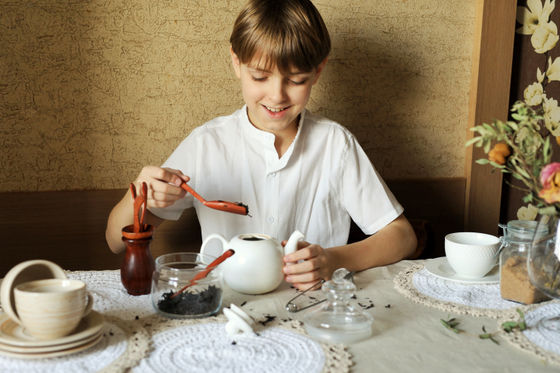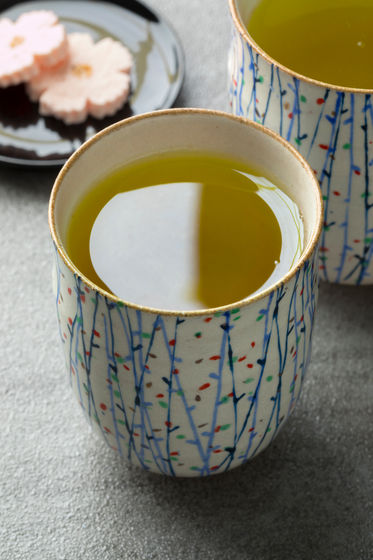A cup of tea reduces the new coronavirus in the mouth by 99.9%

At the time of writing, it has been almost a year since the new coronavirus infection (COVID-19)
Screening Commercial Tea for Rapid Inactivation of Infectious SARS-CoV-2 in Saliva | Food and Environmental Virology
https://link.springer.com/article/10.1007/s12560-023-09581-0
Can a Cup of Tea Keep COVID Away? Study Finds 99.9% Virus Reduction
https://scitechdaily.com/can-a-cup-of-tea-keep-covid-away-study-finds-99-9-virus-reduction/
Malak Esseily, a virologist at the University of Georgia's Center for Food Safety, and his colleagues noted that tea has a history of being used to treat respiratory illnesses in various cultures. They conducted experiments using commercially available tea leaves to determine whether tea would be effective against SARS-CoV-2 that has infected the mucous membranes of the mouth, and to determine which type of tea would be most effective.
Inspired by her own family's love of tea, Esseili said, 'The ideal infectious disease prevention product would be one that is easy to obtain, easy to prepare and suitable for the whole family.'

Esseiri and Juliana Morris, a graduate student at the time of the study, first mixed 24 types of commercially available tea extracts with water containing SARS-CoV-2 to see if it reduced the infectivity of the virus. They then conducted further experiments with five types of tea that showed a certain level of effectiveness: black tea, green tea, tea with mint, eucalyptus mint tea, and raspberry ginger tea.
In the experiment, one tea bag was steeped in a cup for 10 minutes to make tea of drinking strength. The tea was straight tea without adding any milk or sugar.
When saliva containing SARS-CoV-2 was mixed with tea, all five types of tea were found to inactivate more than 96% of the virus within 10 seconds, with black tea being the most effective, with a reduction rate of 99.9%.
They also conducted similar experiments using extracts made at four times the concentration, with the aim of using them as a mouthwash at times when people do not want to drink tea. They found that all five types reduced the virus by 99.9%.
Tea contains antioxidant polyphenols, mainly in the form of catechins, and the concentration of polyphenols in the extract correlated significantly with the rate of viral reduction, whereas the pH of the tea had no effect.

The study only replicated the experience of drinking tea and ingesting it, and was not a clinical trial in which subjects ingested tea. Therefore, the research team emphasized that further studies are needed to confirm the effectiveness of the tea, and that it has not been shown that tea can be used as a substitute for medical treatment.
'This finding is important because inactivating SARS-CoV-2 in the mouth and throat may prevent the virus from entering the lower respiratory system,' said Esayli. 'The virus can also grow in the nose and may have already reached the lungs by the time a positive test is detected, so tea cannot yet be proposed as a treatment, but it could be an additional intervention that patients and their families can easily incorporate into their daily lives.'
Related Posts:







